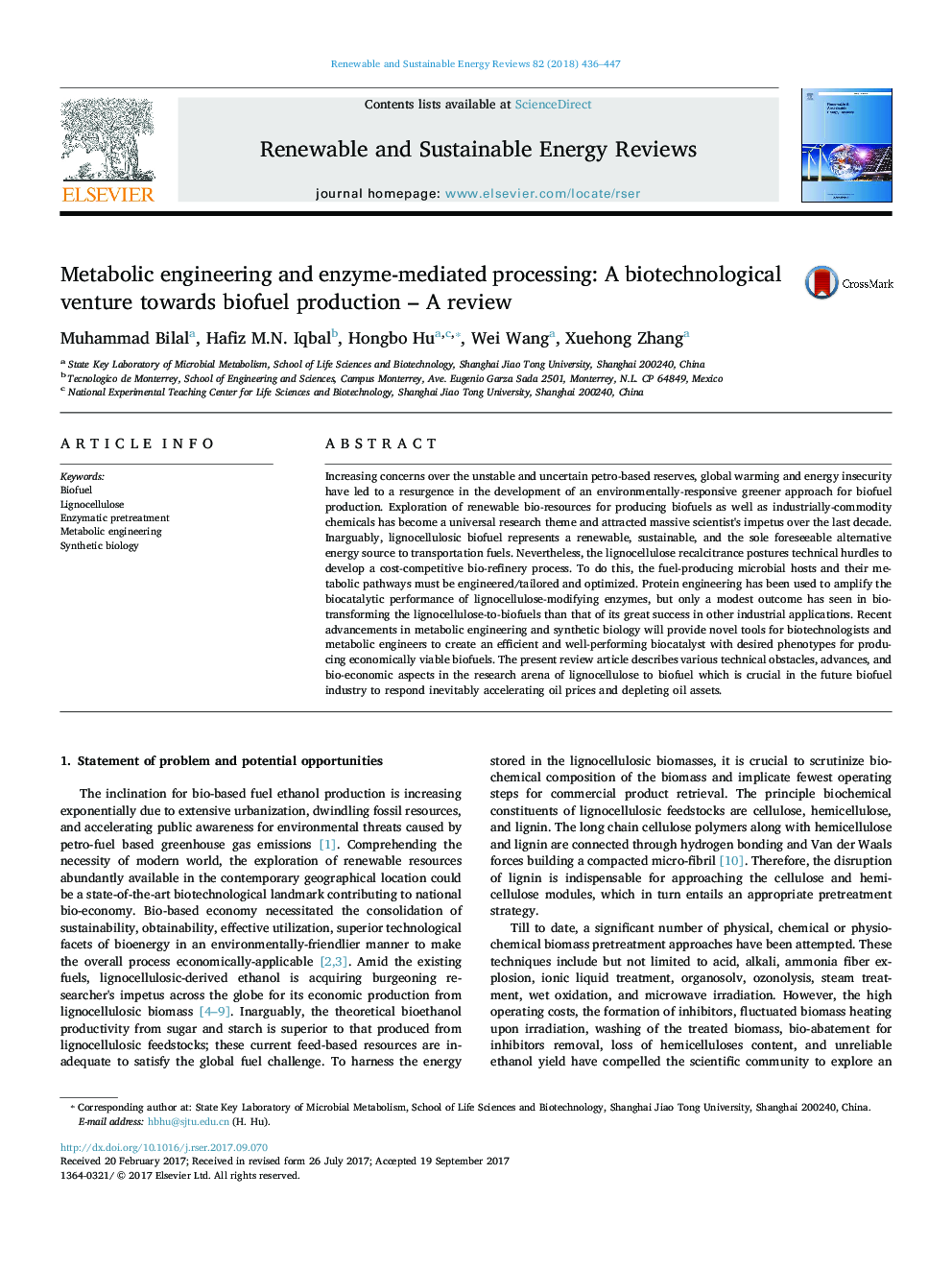| Article ID | Journal | Published Year | Pages | File Type |
|---|---|---|---|---|
| 5481879 | Renewable and Sustainable Energy Reviews | 2018 | 12 Pages |
Abstract
Increasing concerns over the unstable and uncertain petro-based reserves, global warming and energy insecurity have led to a resurgence in the development of an environmentally-responsive greener approach for biofuel production. Exploration of renewable bio-resources for producing biofuels as well as industrially-commodity chemicals has become a universal research theme and attracted massive scientist's impetus over the last decade. Inarguably, lignocellulosic biofuel represents a renewable, sustainable, and the sole foreseeable alternative energy source to transportation fuels. Nevertheless, the lignocellulose recalcitrance postures technical hurdles to develop a cost-competitive bio-refinery process. To do this, the fuel-producing microbial hosts and their metabolic pathways must be engineered/tailored and optimized. Protein engineering has been used to amplify the biocatalytic performance of lignocellulose-modifying enzymes, but only a modest outcome has seen in biotransforming the lignocellulose-to-biofuels than that of its great success in other industrial applications. Recent advancements in metabolic engineering and synthetic biology will provide novel tools for biotechnologists and metabolic engineers to create an efficient and well-performing biocatalyst with desired phenotypes for producing economically viable biofuels. The present review article describes various technical obstacles, advances, and bio-economic aspects in the research arena of lignocellulose to biofuel which is crucial in the future biofuel industry to respond inevitably accelerating oil prices and depleting oil assets.
Related Topics
Physical Sciences and Engineering
Energy
Renewable Energy, Sustainability and the Environment
Authors
Muhammad Bilal, Hafiz M.N. Iqbal, Hongbo Hu, Wei Wang, Xuehong Zhang,
